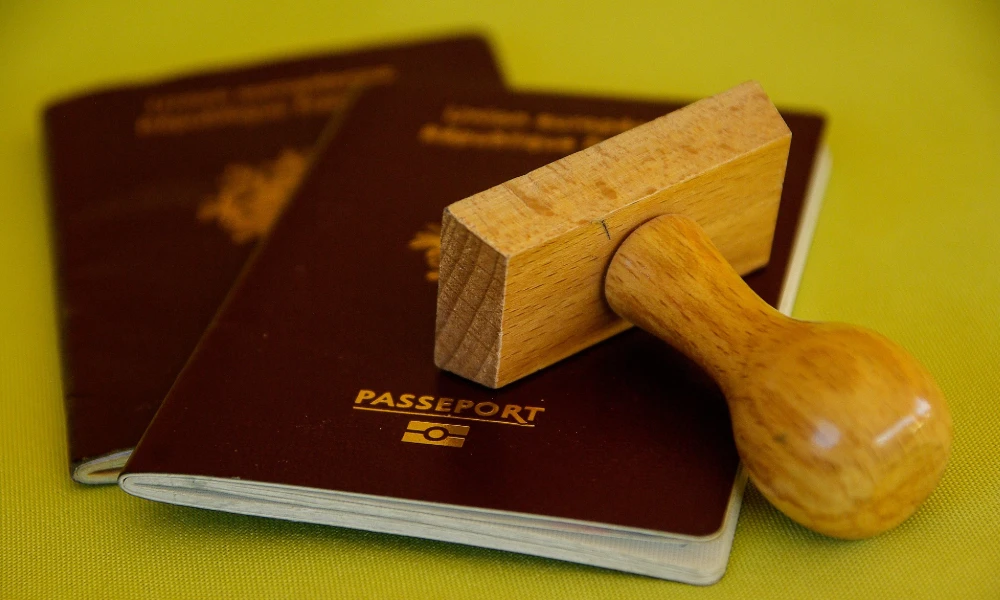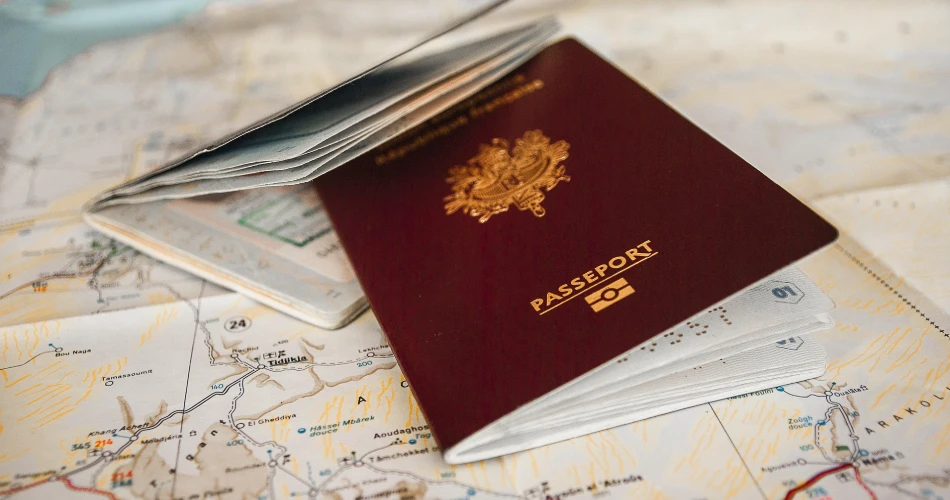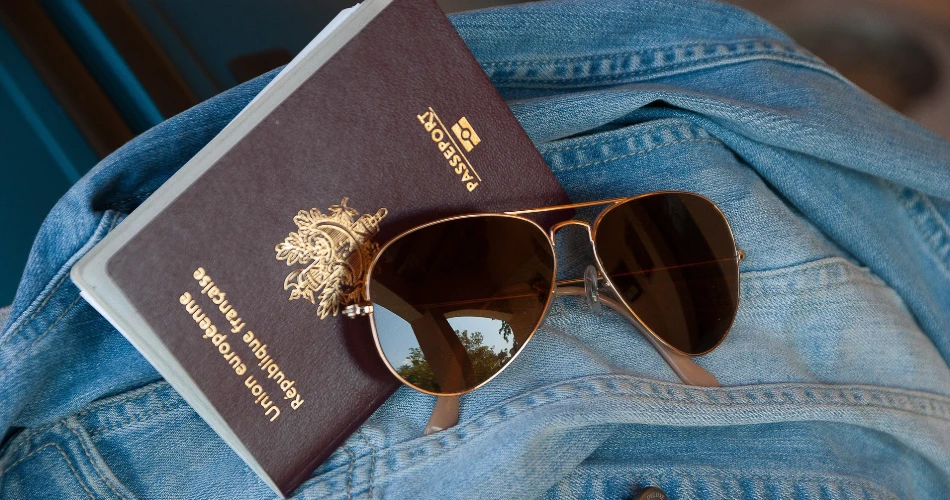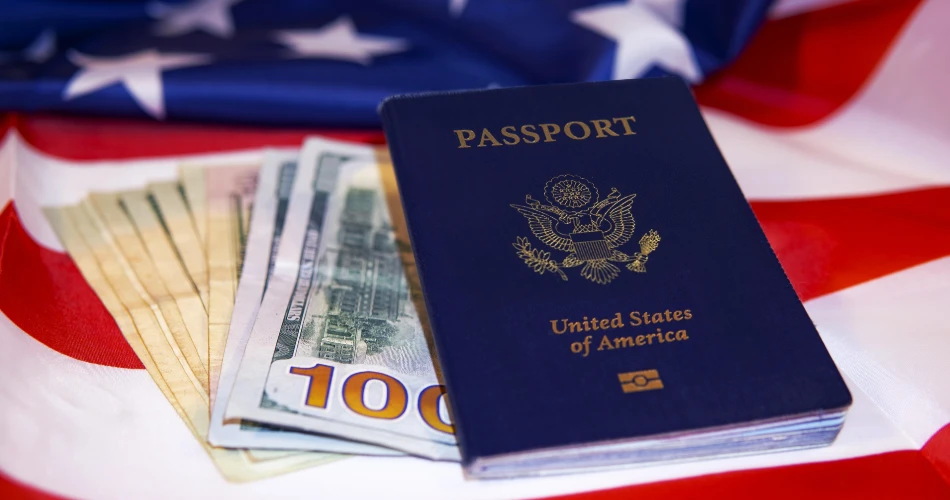
For the purpose of international travel, a passport is a travel document that confirms the identity and nationality of the holder. Passports are granted by governments to their citizens.Passports are compact booklets that normally include the name, place, and date of birth of the bearer, as well as the passport number, photo, and signature.

What Is a Passport?
For the purpose of international travel, a passport is a travel document that confirms the identity and nationality of the holder. Passports are granted by governments to their citizens.
Passports are compact booklets that normally include the name, place, and date of birth of the bearer, as well as the passport number, photo, and signature. Depending on the holder's position in their native nation, there are many sorts of passports.
An official passport is what?
Government employees may receive a service passport, often known as an official passport. Its function is to notify officials in the destination nation that the bearer is entering on official business and serving in that nation's official capacity. Regularly, official passport holders are not given any further benefits.
Describe the diplomatic passport
Diplomats who are representing their home nation overseas and travelling on official business are given diplomatic passports.
Governments appoint diplomats to conduct official business abroad and maintain social, political, and economic ties with other nations. Their passports often confer on them various rights and advantages, including immunity from punishment and taxation in the host nation.
A passport for emergencies is what?
If you've misplaced or had your passport stolen and don't have the time to apply for a new one, an emergency passport, also known as a temporary passport, will be provided. For instance, if you unintentionally left your passport on the plane and are unable to catch your connecting flight, you can contact your embassy and request a one-way emergency passport to get you home.
Describe the collective passport
A group, such as a class of students travelling overseas, may be granted a collective passport. However, it's usually suggested for kids to travel with their own passports.
An example of a family passport
A family passport is given to one member of the family, although it can be used for travel by the entire family. However, the person who holds the official passport must also go. Family passports are now rather uncommon.
How Do I Get an ePassport?
A conventional passport booklet with an electronic chip embedded in the cover is known as a "epassport," or electronic passport. The information on the passport bearer is stored on this chip, adding an added level of protection against passport fraud.
Is a Passport Required?
The only way to prove your identity and nationality when travelling overseas is with a passport. They ensure the bearer's protection and safe transit through a foreign country.
If you're flying, you often have to show your passport numerous times at the airport, and if you're driving, you usually have to do it at the border. You could also require a visa in order to enter the nation of your destination.
Do Domestic Flights Require a Passport?
No. For domestic flights, any government-issued picture identification is usually sufficient and you don't require a passport. To find out what documentation you require for both domestic and international travel, make sure to consult your nation's travel laws.
My passport may I use as identification?
Yes. Outside of the airport, you can prove your identity using your passport. To avoid the expense and inconvenience of having to replace a lost passport, it is not advised to take your passport with you every day or on a night out.
What Kind of Document Is a Passport?
Passports are size 3 travel papers that must adhere to specified rules for their design, organisation, and content, according to the International Civil Aviation Organization's Doc 9303 "Machine Readable Travel Documents."
The format of size 3 travel documents must be a booklet with at least eight pages and a data page. The data page must contain the information in certain areas and zones that enable electronic reading. To further guard against fraud and passport forgery, the ICAO mandates a number of security elements.
Where Can I Go If I Have a Passport?
Even if you have a passport, you might not be able to enter the nation you want to go to. But for foreign travel, passports are required. In order to be admitted into your target country, you might need to apply for a travel visa beforehand.
Before setting out on your tour, make sure to check out Jodogo to see which countries accept passport holders without a visa and which nations require a visa application before you can enter.

When travelling, how long must a passport be valid?
Generally speaking, passports must be valid for at least six months after the start of your journey date. If you run the risk of having your passport expire while you're travelling, your destination country might not let you in.
How long your passport must be valid varies depending on the country. Prior to starting your journey, make sure to check the government website of your target nation.
How many blank passport pages am I have to have in order to travel?
When travelling internationally, passports normally need to contain two to four blank visa pages. If there is no room for the entrance visa to be stamped into your passport, the airline may refuse to allow you board or your destination country may refuse to let you enter.
Entry criteria for the quantity of blank visa pages required vary per nation. Before you leave on your trip, make sure to check the government website of your destination.
Children: Do They Need Passports?
Children and infants do indeed need passports.
If I Change My Name, Do I Need a New Passport?
Yes. You must apply for a new passport if you have legally altered your given name or last name. Your identification must be accurately reflected on all of your travel documentation.
Make careful to submit formal documentation of the name change while applying for a new passport owing to a name change, such as a marriage certificate.
How Do I Proceed If My Passport Is Lost or Stolen?
You must notify the authorities as soon as possible if your passport is lost or stolen. Report the incident to the local police and the embassy or passport office of your nation. Your passport will be rendered invalid to prevent fraudulent use of it, and you might be given a temporary passport to use to return home. The next step is to apply for a new passport.
Is it Legal to Travel on Damaged Passports?
I doubt it. Applying for a new passport is your best option if your current one is destroyed in any manner. If you show the border security at your final destination a damaged passport, it's both feasible and very likely that they will deny you access.
In accordance with the Canadian government, a passport is deemed damaged if it looks to have undergone any alterations and if identifying the bearer is made more difficult. Tears, unapproved marks, and humidity and water exposure are a few examples of damage.
Because they are official papers, passports need to be kept safe at all times.
My passport can it be revoked?
Yes. Your passport may be cancelled for a number of reasons, including losing your citizenship, being accused of a crime, or giving incorrect information on your passport application. Your passport may be refused or revoked by the organisation responsible for issuing your passport if they believe they have good cause to do so.
Which Security Features Are on Passports?
Passports need to contain specific security elements to thwart fraud and forgery, in accordance with the International Civil Aviation Organization's Doc 9303 "Machine Readable Travel Documents."
A few of the security features include optically changeable ink that changes colour when exposed to various light sources, an electronic chip holding the bearer's information, holograms that glow under UV light, and anti-scan patterns.
In order to make passport forgeries as difficult as possible, passport-issuing authorities are encouraged to apply a range of security elements.
How Are Passports Produced?
Passport printing businesses produce passports. The International Civil Aviation Organization's Doc 9303 "Machine Readable Travel Documents" sets requirements for passports, and these businesses make sure that all passports adhere to those standards. Doc 9303 establishes the requirements for the construction of passports and the security mechanisms that must be there in order to prevent attacks.
Special paper is used to make passports, which are then securely sewn together. A passport booklet includes numerous blank visa pages that are ready for you to fill out with your trip details, as well as a biodata page with your picture, contact information, and, in certain cases, a digital copy of your signature. Holograms, unique font styles, and an electronic chip are other examples of them. Various security mechanisms were included into each component of the passport.
Addresses in passports are there?
No, addresses are not listed on passports. Only your name, passport number, nationality, birthdate, place of birth, sex, and the passport's issue and expiration dates are listed on the data pages, also known as biodata pages.
Do I Need to Sign My Passport?
Yes. Typically, passports feature a signature page that indicates exactly where you should sign the document. A digital replica of your signature may also be included in some passports' biodata pages. You should only sign in the designated area on the designated page of your passport. Any other type of marking will render your passport invalid.
What Should I Do With a Deceased Family Member's Passport?
Be sure to check your government's website for the correct steps for returning a passport that you have that belongs to a deceased family member.
The passport must typically be returned to the appropriate authorities if it is still valid, that is, if its expiration date has n

Do Americans Need Passports to Travel to the Bahamas?
Yes. A current passport is necessary for re-entry into the US, hence US citizens travelling to the Bahamas must have one.
The best passport in the world is which one?
According to the Jodogo, the UAE passport is the strongest in the world since it has a total mobility score of 173 nations and permits visa-free travel to 116 of them as well as visa-on-arrival travel to 57 of them.
Can a person have more than one passport?
The number of passports that one person can own is really not capped. However, there may be provisions about dual citizenship under your home country's citizenship laws. Some nations forbid their people from possessing two or more passports and demand that they exchange their current citizenship for a new one. With varied restrictions, other nations do permit dual or multiple citizenship. For instance, if both nations end up at war with one another, taking up arms against one of them could result in the revocation of your passport.
Passport application
Where Do I Go to Apply for a Passport?
The procedure for applying for a passport varies per nation. To find out how to get a passport, visit the government website of your nation. You might need to submit your application in person at a government office, or you might be able to do it online.
You typically need to complete a passport application form, present identification and citizenship verification, supply passport-sized images, list two references on the application form, and pay the application price.
It is crucial that you accurately and honestly complete the application form because if you don't, your request can be rejected.
What Is the Cost of a Passport Application?
You must pay a cost when applying for a passport or renewing one. This fee is known as the passport application fee. The cost varies depending on the nation. The cost to apply for a new Canadian passport, for instance, is CA$120 for a five-year passport and CA$160 for a ten-year passport.
What supporting documents do I need to apply for a passport?
You must submit proof of your identity and citizenship while applying for a passport.
For instance, supporting documents for a Canadian passport application must contain evidence of citizenship, such as an original birth certificate, and a second form of identification, such as a driver's licence, two identical passport pictures, and a valid Canadian travel document.
The prerequisites for applying for a passport vary per nation. Verify the list of acceptable supporting papers on your government's website.
The length of time it takes to obtain a new passport
The time required to obtain a passport varies by nation. For instance, it may take between 10 and 20 days to acquire a Canadian passport following a successful application, whereas it may take three to six weeks to receive a British passport.
To find out how long it will take after you submit your application for a new passport, visit the government website of your nation. You might have to pay a rush fee if you need it more quickly.
How Can I Obtain a Passport Immediately?
You might be able to pay a premium for expedited service if you've reviewed your government's processing periods for passports and find that you need your passport more quickly.
By paying the CA$110 price, for instance, you can get a Canadian passport the next day. Make sure to look up the cost of urgent service on the website of your government.
Will My Old Passport Be Returned to Me When I Renew My Passport?
The passport-issuing agency for your country may either return your old passport to you or securely destroy it. In order to invalidate it, your previous passport will typically be returned to you in damaged condition, such as with a hole in the booklet. You will receive a refund if you have an entry visa that is still valid in your previous passport.
When I renew my passport, does my passport number change?
Yes. The number on your new passport will be different from the one on your old one. You might need to update any applications you made using your old passport if you have since obtained those papers.
Can My Passport Expire? How long is my passport valid?
Depending on the nation, passports are often only valid for five or ten years before they lose their travel-related validity. Make sure your passport is still valid at least six months after the start of your trip if you plan to travel; otherwise, you risk being denied admission into your destination nation.
Can I get a passport application rejected?
Yes. If you applied for a passport and supplied false information, are not a citizen of the country, or have been accused of a crime, for example, the passport-issuing authorities of your country may refuse to issue you one. There are numerous causes why why your passport application can be rejected. Make sure to look up the pertinent information on your government's passport website.
When Did the First Passport Issue Take Place?
Since Biblical times, when people might receive letters of safe conduct asking foreign governors to grant them safe passage, passports have been a significant piece of documentation. The Bible's book of Nehemiah, which was written around 450 BC, has the first reference to a passport.
Marco Polo's father was the first European to be granted safe conduct by Kublai Khan in the 13th century, opening the door to the entire Mongol Empire.
King Henry V, who had the power to grant safe conduct to anybody, including foreigners, first mentioned it in England in 1414. The granting of travelling documents under the Privy Council in England became customary by 1540. At this period, the word "passport" was in common usage. They were generally used as identity documents, but they were not always necessary for international travel.
In the first decades of the 20th century, identity and travel were finally formally combined. The first British passport was created in 1914 according to the British Nationality and Status Aliens Act. The League of Nations had approved a common passport format by 1920.
Here we go to Book JODOGO
Airport Assistance Services
Our Blog
Lastest blog posts

A layover at Manila's main international gateway doesn't have to mean endless hours of boredom. While NAIA might not be the world's most modern airport, it offers plenty of authentic Filipino experiences to keep you entertained. Whether you're stuck for three hours or ten, here's how to turn your NAIA layover into a taste of the Philippines.

A layover at Newark Liberty International Airport (EWR) doesn’t have to mean hours of boredom. Whether you’ve got just a couple of hours or a full day to spare, there are plenty of ways to stay entertained, well-fed, and relaxed before your next flight. Here’s how to turn your Newark layover into an enjoyable experience.

Stuck at Chicago O'Hare International Airport (ORD) between flights? Don't worry - as one of America's busiest airports, O'Hare offers plenty of ways to eat, shop, and explore during your layover. Whether you've got two hours or ten, here's how to make the most of your time at this Windy City hub.